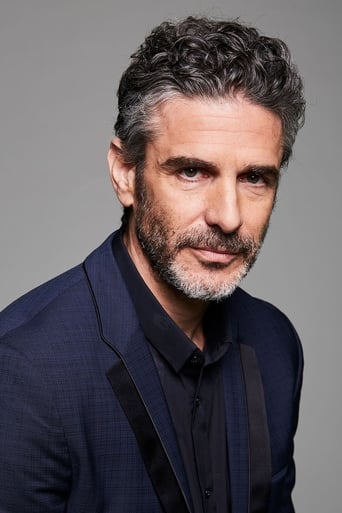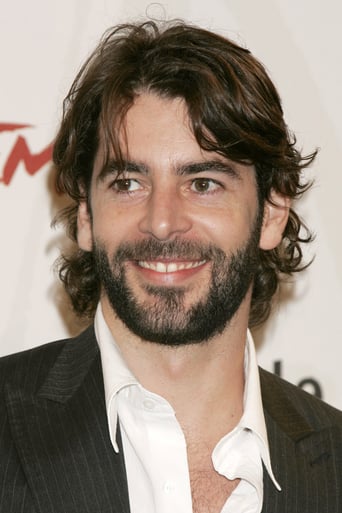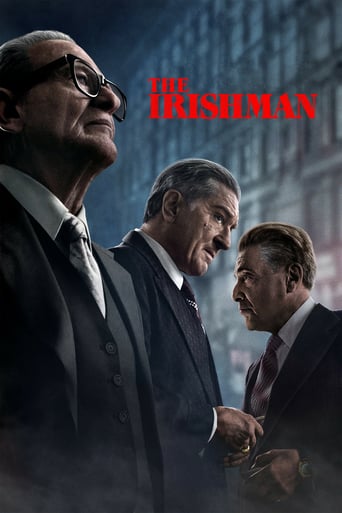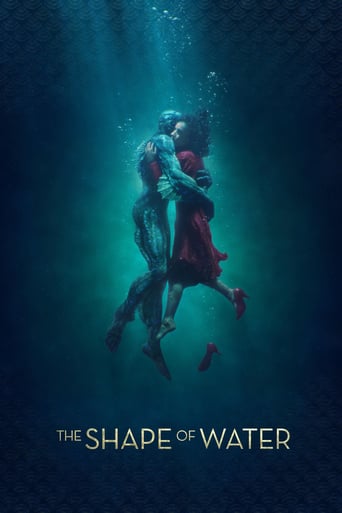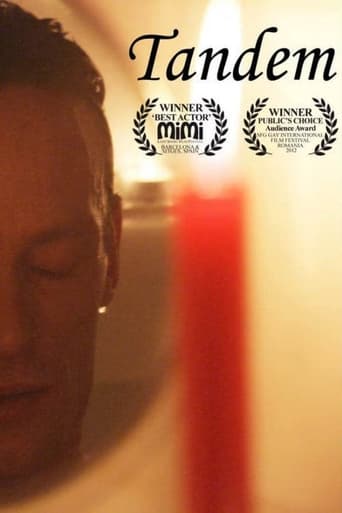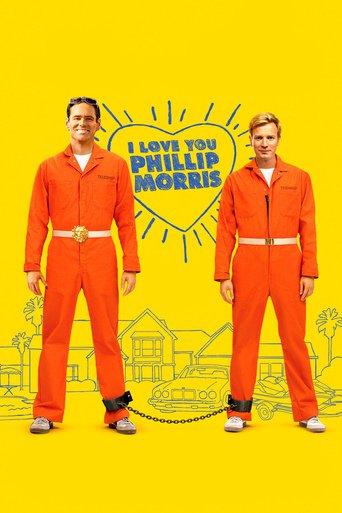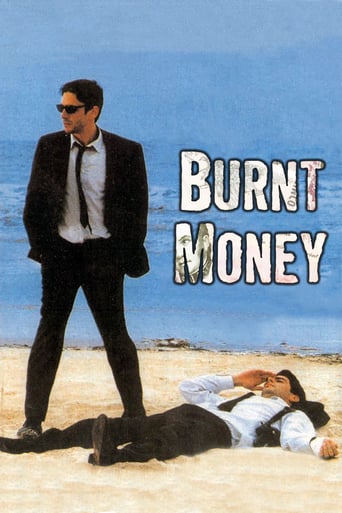
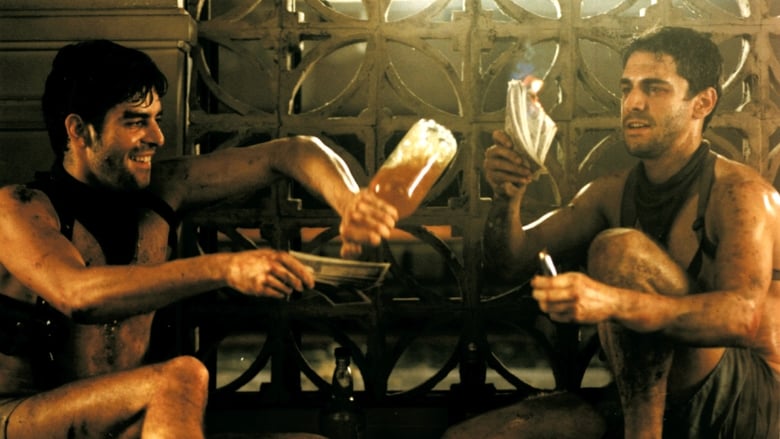
Burnt Money (2001)
Set in Argentina in 1965, the story follows the tumultuous relationship between two men who became lovers and ultimately ruthless bank robbers in a notoriously famous footnote in the annals of crime history. After a large-scale hold-up that turns bloody, the two men must flee. It is not long before the police are surrounding the building they are in and they must confront their demons to survive.
Watch Trailer
Cast
Similar titles
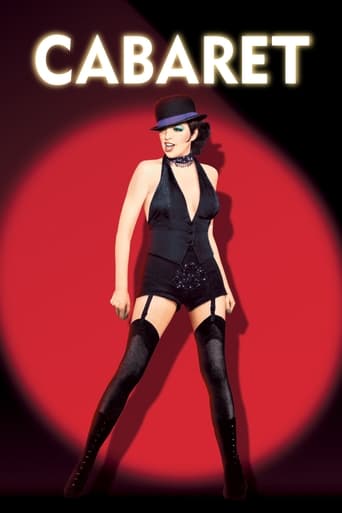
Reviews
Wonderful Movie
Why so much hype?
Too much of everything
Exactly the movie you think it is, but not the movie you want it to be.
Burnt Money is a love story, alone in its conquest for equality in the Latin American setting of 1965. At the center are two men, Angel and Nene, characters sharing an extraordinary bond of love, implicit in two ways: one, in that their sexual identity is repressed, and two, that the viewer never witnesses sex in its explicit form between the two. The two struggle to understand just where they fit: Nene, taking in his sexual company a lonely prostitute, and Angel, grappling with Nene's apparent refusal of him by shooting up heroin, nearly dying as a result of his amorous devotion. In a nod to Hollywood cinema, Marcelo Piñeyro focuses on the action just as much as he focuses on the relationship of two men, who call themselves Los Mellizos, or the twins. Like its name implies, Burnt Money appears to signify loss, or losing the value of something or someone. Marcelo Piñeyro suppresses the explicit relationship and the erotic routine from the viewer's eyes. It's almost as if he himself wants to break away from the tradition of thinking that gay love is always overtly evident. Scene after scene, the incredible excruciation of being in love is honorably, even horrifically evident, such as in the scene where Nene tenderly takes to the bullet in his lover, Angel's side; whose agonized screams are shrill as well as painful. Burnt Money is a movie that society should be interested in, because it shows how first impressions are almost always incorrect. By the end of the movie, the audience realizes for itself how living in a materialistic culture affects their understanding of the film. This movie is not for the viewer with a preconceived or pessimistic notion of homosexuality, or one who is easily turned away from overt sexuality, as it appears elsewhere in the film. It's inconceivable to think of a love surviving amidst chaos, yet explicitly evident by the film's conclusion are two characters gleefully and explicitly demonstrating their devotion; a scene where the two burn the money that they stole, and that which their pursuers are after.
Burnt Money, a provocative, severe crime thriller from Argentina, begins like a Spanish- language Guy Ritchie narrative, with an assembly of criminals arranging a heist. Yet the heist is over in a glance. The lion's share of the story is the impact of the job. So much of this film seems already acquainted, from its appealing crime thriller stylization to its narrative echoes of Reservoir Dogs, Heat and Bonnie and Clyde, that when it takes one of its unprecedented turns it overcomes you. There are a lot of unforeseen detours.The opening introduces us to Angel and Nene, gay lovers who live in a murky Buenos Aires apartment. A narrator notifies us that they are known as "the twins." After showing how they met, in a grungy public restroom, the narrator distinguishes the one telling way they are similar: "the still eyes, the lost glare." The knifelike center on character relationships, and the novelistic way the story is divulged through sequential narrators, featuring internal monologue, prepares us to pull back to enmesh the "twins" in the heist. Neither they, nor the story, are as they appear.Leonardo Sbaraglia plays Nene with scorched vigor. He has the loose-hipped walk of a younger Robert Downey, Jr., yet oozing even more with suggestiveness. His underhanded approach to life is not smug or justified, but rather self-assuredly devoid of any overeagerness or vanity. Eduardo Noriega brings a preyed-upon sentimentality to Angel. We feel at first as if he may be slow, and perhaps to some extent he is, but in a way that is lost in emotionally charged internalized delusions, a return to the primordial dilemma. He seems afloat in dissolution, a dream state readily seen. And their emotional holding out becomes a game that neither wins. Where they are intimate, there is peace restored, and there are religious obstacles.The robbery of an armored car goes awry. The thieves, one of them injured, must stay completely out of sight. Law-sided demoralization and violence are initial drives of the story's turning point though not at the center. The film, which is based on a true story, offhandedly concedes that the lines separating cops from robbers are obscured, but its focus remains tight on the robbers.One should not write this film off as categorized for a gay target audience. Though it revolves around the two implicitly loving leads, Burnt Money seems to compete with much more vivid heterosexual pairings. Nene swings both ways, and Cuervo, the getaway driver played by Pablo Escharri, has a girlfriend who figures integrally in the plot. After the men flee to Uruguay, police beatings push the left-behind girlfriend to give them up. Their status revealed, the robbers must stay out of sight, pressures mounting. Anti-gay implications add to the enmity. They don't trust each other, everyone keeps a gun at hand, but attachments gradually solidify nonetheless.Burnt Money could have almost been made in the 1970s, when a film with the promise of spectacle in its subject matter was almost expected to take the more complex way to the end, no matter what the end may be. And yet the film reaches a climax we've seen so many times. Nevertheless, even in its brutal execution which extrinsically offers not much in the way of variation on a device dating back to the original 1932 Scarface, it maintains a theme of dissolution, a dream state made real to them, of feelings taking over, a theme which, in the end, makes the film its own beast.
I like the relation ship between de main characters, is a way to show lovebetween two people, in this case, men Is a hard love story, but very human, very sensitive You can feel pain. the actors are terrific, did they win an award, because they deserved one. I didn't like the voice over at the beginning, we don't need itThe soundtrack is very smart, I loved the moment when The "nene" speaks thevoice over and we can hear Billy Holiday. Good direction good art Thank you!
I loved the whole experience; the feel, the mood, the music, the story, and the beautiful protagonists.I felt for the characters; their passion, problems, and failings.Besides, I like a true story told very well, with beautiful actors. It was very, very well done.
